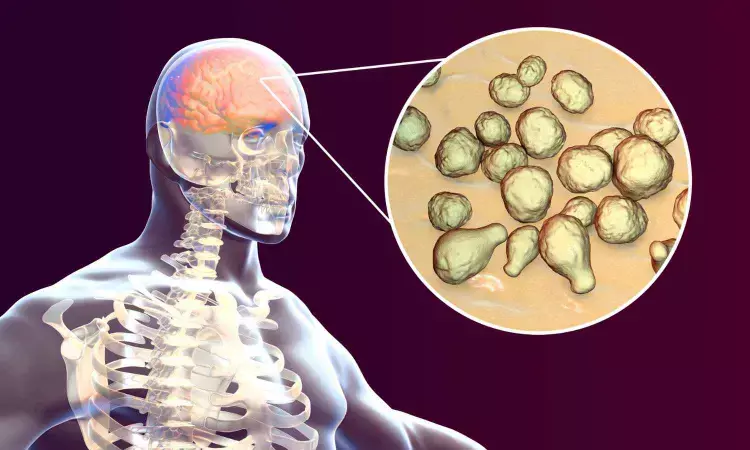- Home
- Medical news & Guidelines
- Anesthesiology
- Cardiology and CTVS
- Critical Care
- Dentistry
- Dermatology
- Diabetes and Endocrinology
- ENT
- Gastroenterology
- Medicine
- Nephrology
- Neurology
- Obstretics-Gynaecology
- Oncology
- Ophthalmology
- Orthopaedics
- Pediatrics-Neonatology
- Psychiatry
- Pulmonology
- Radiology
- Surgery
- Urology
- Laboratory Medicine
- Diet
- Nursing
- Paramedical
- Physiotherapy
- Health news
- Fact Check
- Bone Health Fact Check
- Brain Health Fact Check
- Cancer Related Fact Check
- Child Care Fact Check
- Dental and oral health fact check
- Diabetes and metabolic health fact check
- Diet and Nutrition Fact Check
- Eye and ENT Care Fact Check
- Fitness fact check
- Gut health fact check
- Heart health fact check
- Kidney health fact check
- Medical education fact check
- Men's health fact check
- Respiratory fact check
- Skin and hair care fact check
- Vaccine and Immunization fact check
- Women's health fact check
- AYUSH
- State News
- Andaman and Nicobar Islands
- Andhra Pradesh
- Arunachal Pradesh
- Assam
- Bihar
- Chandigarh
- Chattisgarh
- Dadra and Nagar Haveli
- Daman and Diu
- Delhi
- Goa
- Gujarat
- Haryana
- Himachal Pradesh
- Jammu & Kashmir
- Jharkhand
- Karnataka
- Kerala
- Ladakh
- Lakshadweep
- Madhya Pradesh
- Maharashtra
- Manipur
- Meghalaya
- Mizoram
- Nagaland
- Odisha
- Puducherry
- Punjab
- Rajasthan
- Sikkim
- Tamil Nadu
- Telangana
- Tripura
- Uttar Pradesh
- Uttrakhand
- West Bengal
- Medical Education
- Industry
Kerala doctors treat first case of dual brain infection

Thiruvananthapuram: Kerala Health Minister Veena George announced on Wednesday that the state's health sector has achieved a rare feat by successfully treating a 17-year-old boy who was simultaneously infected with amoebic meningoencephalitis and Aspergillus flavus.
She said this was the first known case in the world where a patient with both infections had been treated successfully and made a full recovery.
"The boy was under treatment at Alappuzha Medical College Hospital for three weeks and was then shifted to Thiruvananthapuram Medical College. The neurosurgery team conducted surgeries on the patient, and he has now completely recovered after three months of treatment," George told reporters, news agency PTI reported.
Also Read:NMC nod to 2 Govt medical colleges in Kerala, 100 MBBS seats to be added
The microbiology lab at Alappuzha identified the disease-causing amoeba and fungus from the patient's spinal fluid, following which treatment was initiated in line with government guidelines, she said.
An MRI scan showed pus in the brain, and the patient was shifted to Thiruvananthapuram, where a neurosurgery team operated. As his condition worsened, a second surgery was performed, after which the boy began to recover. "We also used five drugs for the treatment, as both infections are fatal. We reviewed the patient three weeks after discharge, and he is perfectly normal now," said Dr Aravind, Associate Professor, Department of Infectious Diseases, Thiruvananthapuram Medical College.
George said that while several cases of patients with both amoebic meningitis and Aspergillus flavus infections had been reported worldwide, none had survived. "This is the first time such a patient has been brought back to life. I would like to congratulate the medical teams in both Alappuzha and Thiruvananthapuram medical colleges for this achievement," she added.
She credited treatment guidelines formulated by the government three years ago for helping save the boy's life. "Such cases-either amoebic meningitis or Aspergillus flavus infections-carry around 99 per cent mortality worldwide. In Kerala, in the past two years, 86 cases of amoebic meningoencephalitis have been reported, with 21 deaths. This is a mortality rate of around 23 to 24 per cent," the minister said, reports PTI.
On whether such infections were rising in Kerala, she said, "The answer is that we have been able to identify the cases early. In post-mortem studies of meningitis deaths where the cause of infection was not identified earlier, about 11 per cent were due to amoeba."
She said Kerala has responded effectively to such cases, undertaking preventive measures with the help of other departments and local bodies, including chlorination of wells. The health department has also issued advisories and run awareness campaigns on preventing amoebic infections.
"At present, two districts-Thiruvananthapuram and Kozhikode-have active amoebic meningitis cases, with 11 each. All microbiology labs in medical colleges are now equipped to detect the infection. We have also developed the capacity to carry out PCR tests to identify the type of amoeba, and this facility is now available at our Public Health Lab," George said.
The extremely lethal central nervous system infection, amoebic meningoencephalitis, is caused by free-living amoebae. This deadly infection is typically contracted from freshwater sources such as lakes, rivers, and streams. Aspergillus infection is an illness caused by a common fungus called Aspergillus, which is commonly found in the environment.
Also Read:Kerala launches campaign against Amoebic Meningoencephalitis amid 18 active cases


